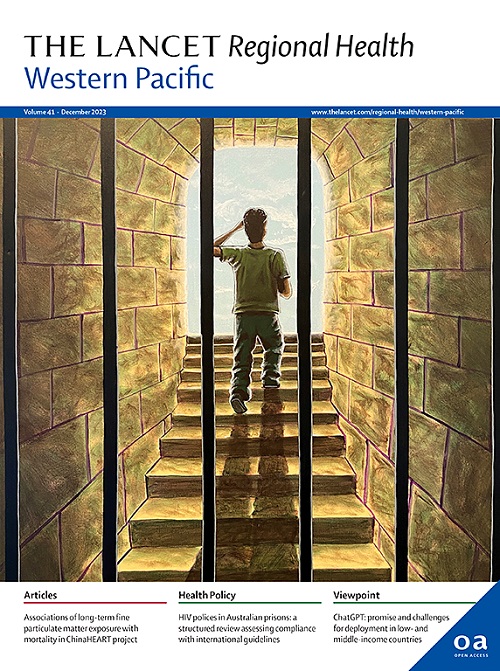Evolution of strategic framework of policies related to dementia care and prevention in China from 2000 to 2024
IF 7.6
1区 医学
Q1 HEALTH CARE SCIENCES & SERVICES
引用次数: 0
Abstract
Background
Dementia has emerged as a critical public health issue on the global policy agenda. Over the past 25 years, China has increasingly recognized the significant challenges posed by dementia and has made substantial strides in formulating relevant policies. This study aims to analyze the strategic framework of China’s dementia policy development to provide valuable insights for other low- and middle-income countries as they draft their national action plans.
Methods
Policy documents were systematically searched and retrieved from the official websites of pertinent policy agencies. The evolutionary phases of dementia policies were identified based on the timeline of policy issuance. A comparative thematic analysis was conducted to explore the evolution of policy content. Additionally, WordCloud analysis was utilized to examine the frequency of relevant terms within these documents. Co-occurrence network diagrams were then created to illustrate the evolving trends in the relationships among key terms and activities related to dementia care.
Findings
A total of 36 policy documents were included in this study. Three distinct phases were identified over the past 25 years: an incipient phase (2000–2014), a development phase (2015–2018), and a boom phase (2019–2024). Themes within dementia policies have progressively expanded and enriched across these phases. There has been a notable shift in focus from “intervention” during the incipient phase to “dementia prevention” in the boom phase, with themes such as “screening and evaluation” and “public education” gaining prominence. Stakeholder involvement has diversified to include entities like “community,” “institutions,” and “social workers.” Moreover, the scope of potential beneficiaries has broadened from “patients” to encompass “family members” and “caregivers.” The number of nodes related to dementia policies has increased, and their interconnections have strengthened over time.
Interpretation
Over 25 years, the themes, content, and stakeholders involved in China’s dementia-related policies have expanded significantly. Furthermore, the interconnection among key terms and content has grown stronger. These findings offer valuable references for advancing national dementia initiatives and updating dementia action plans in low- and middle-income countries.
Funding
Jiangxi Province Key Research Base Program for Philosophy and Social Sciences (23ZXSKJD28) and Beijing Medical Award Foundation.
2000 - 2024年中国痴呆护理与预防政策战略框架演变
痴呆症已成为全球政策议程上的一个关键公共卫生问题。25年来,中国日益认识到痴呆症带来的重大挑战,并在制定相关政策方面取得了实质性进展。本研究旨在分析中国痴呆症政策制定的战略框架,为其他中低收入国家制定国家行动计划提供有价值的见解。方法系统检索相关政策机构官方网站的政策文件。基于政策发布的时间轴,确定了痴呆政策的演化阶段。通过比较主题分析,探讨政策内容的演变。此外,使用WordCloud分析来检查这些文档中相关术语的频率。然后创建了共现网络图,以说明与痴呆症护理相关的关键术语和活动之间关系的演变趋势。本研究共纳入36份政策文件。在过去的25年中,确定了三个不同的阶段:初期阶段(2000-2014年),发展阶段(2015-2018年)和繁荣阶段(2019-2024年)。痴呆症政策的主题在这些阶段逐渐扩大和丰富。从早期阶段的“干预”到繁荣阶段的“预防”,重点有了明显的转变,“筛查和评估”、“公众教育”等主题突出。利益相关者的参与已经多样化,包括“社区”、“机构”和“社会工作者”等实体。此外,潜在受益者的范围也从“患者”扩大到“家庭成员”和“照顾者”。与痴呆症政策相关的节点数量增加了,它们之间的相互联系随着时间的推移而加强。在过去的25年里,中国痴呆症相关政策的主题、内容和利益相关者都有了显著的扩展。此外,关键词和内容之间的互联性也越来越强。这些发现为低收入和中等收入国家推进国家痴呆症倡议和更新痴呆症行动计划提供了宝贵的参考。江西省哲学社会科学重点研究基地项目(23ZXSKJD28)和北京市医学奖基金。
本文章由计算机程序翻译,如有差异,请以英文原文为准。
求助全文
约1分钟内获得全文
求助全文
来源期刊

The Lancet Regional Health: Western Pacific
Medicine-Pediatrics, Perinatology and Child Health
CiteScore
8.80
自引率
2.80%
发文量
305
审稿时长
11 weeks
期刊介绍:
The Lancet Regional Health – Western Pacific, a gold open access journal, is an integral part of The Lancet's global initiative advocating for healthcare quality and access worldwide. It aims to advance clinical practice and health policy in the Western Pacific region, contributing to enhanced health outcomes. The journal publishes high-quality original research shedding light on clinical practice and health policy in the region. It also includes reviews, commentaries, and opinion pieces covering diverse regional health topics, such as infectious diseases, non-communicable diseases, child and adolescent health, maternal and reproductive health, aging health, mental health, the health workforce and systems, and health policy.
 求助内容:
求助内容: 应助结果提醒方式:
应助结果提醒方式:


